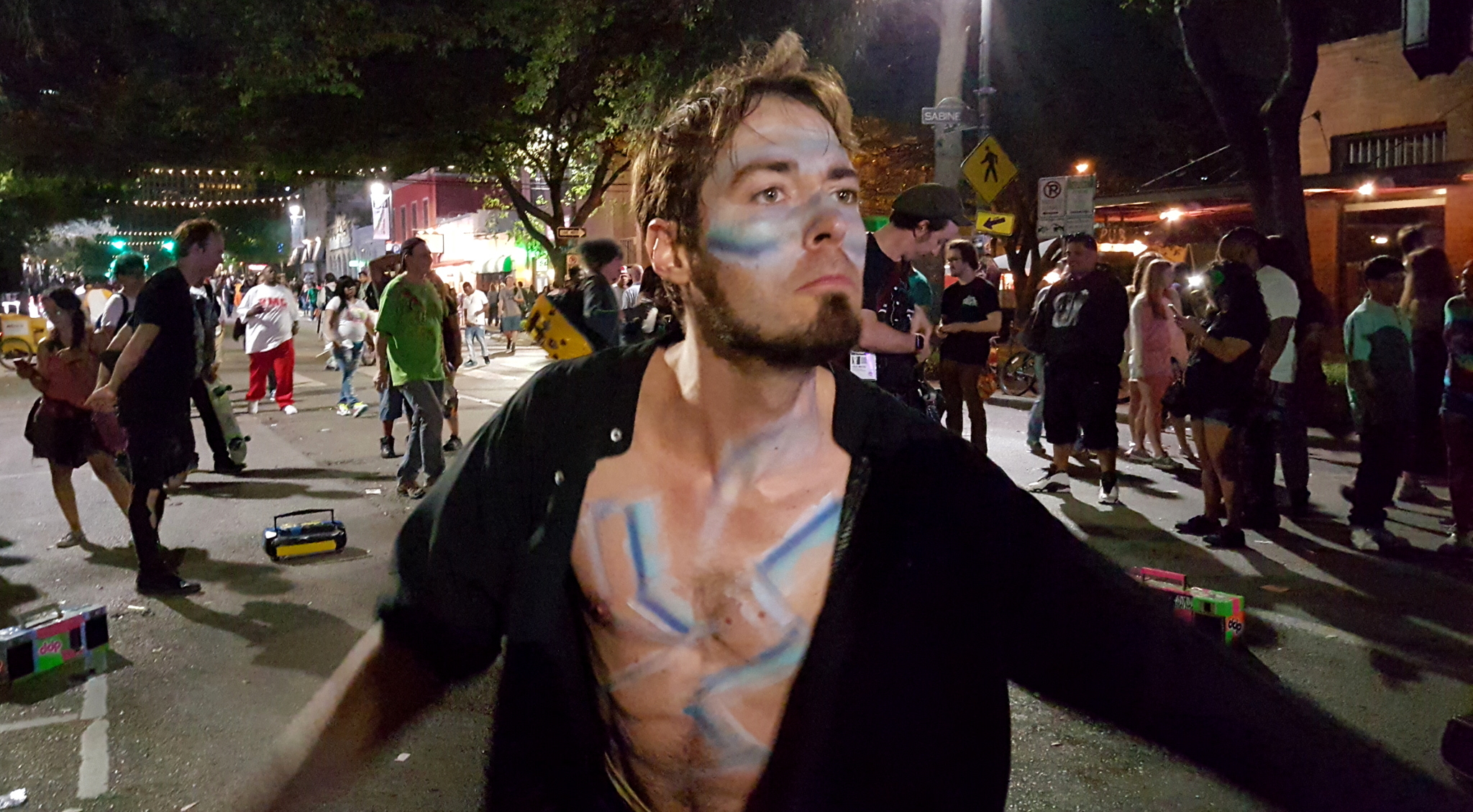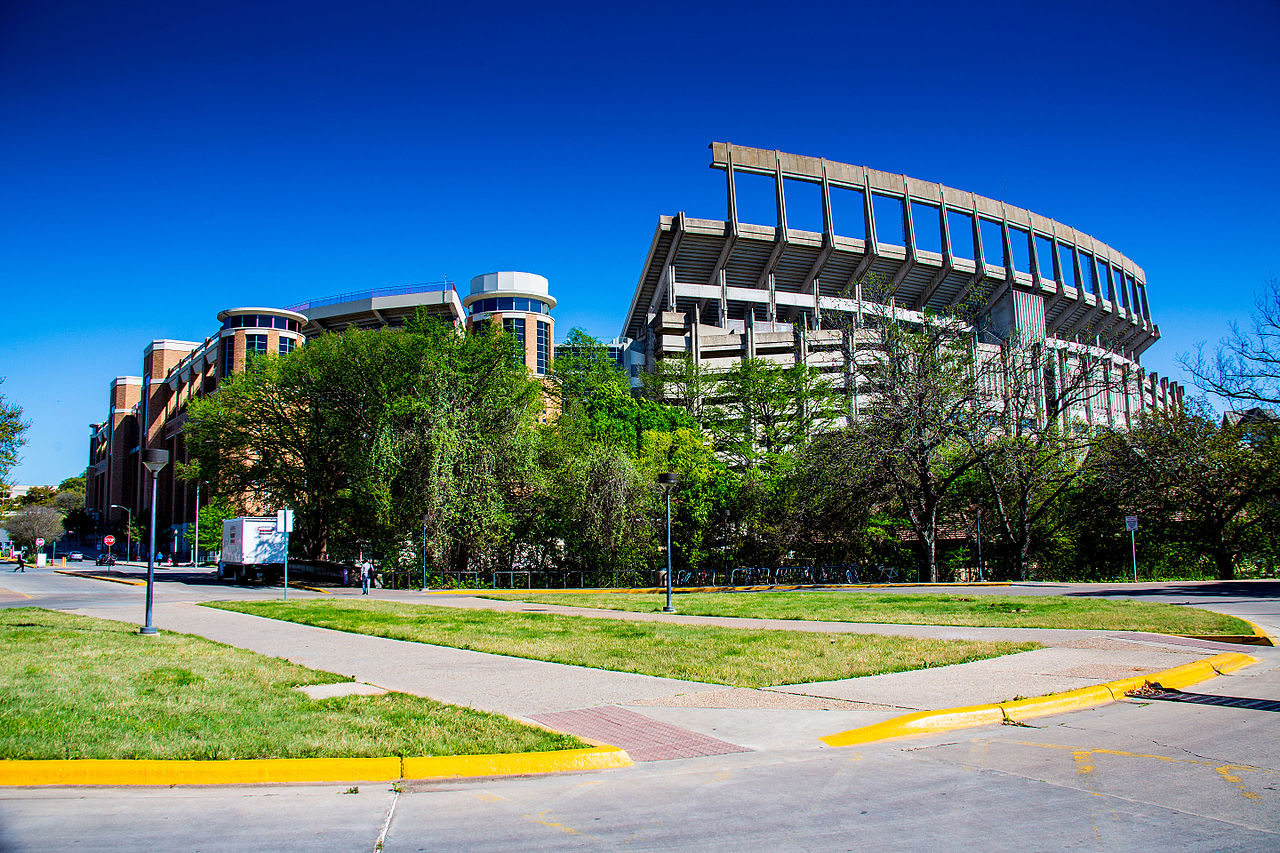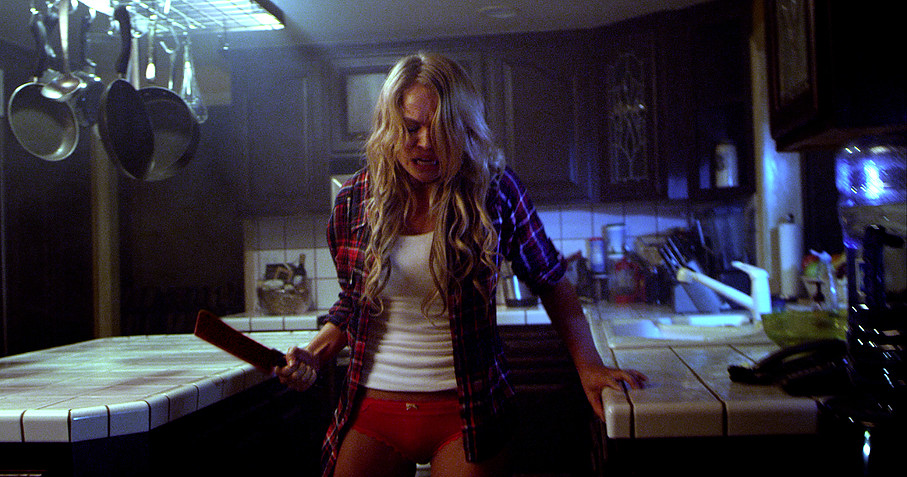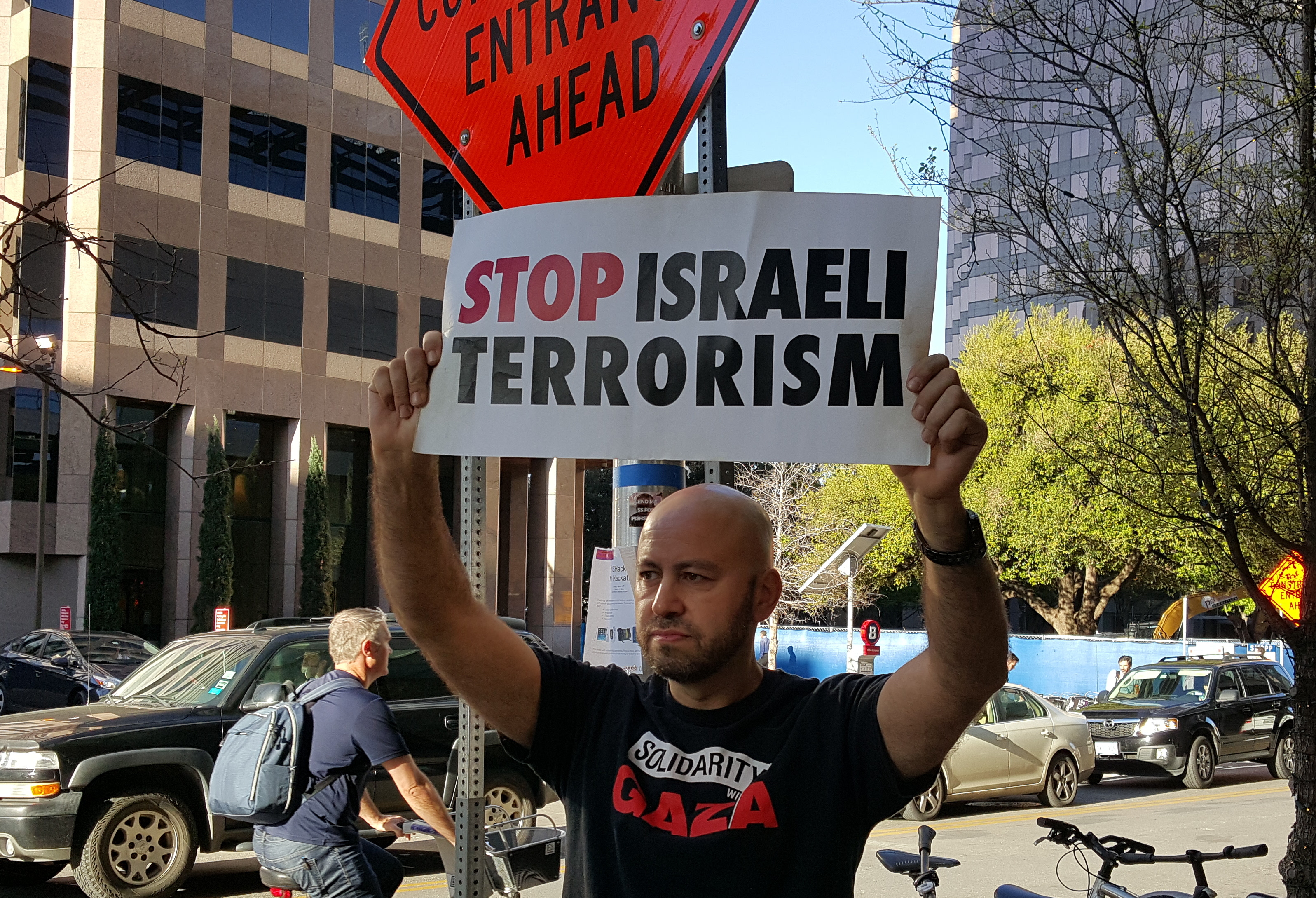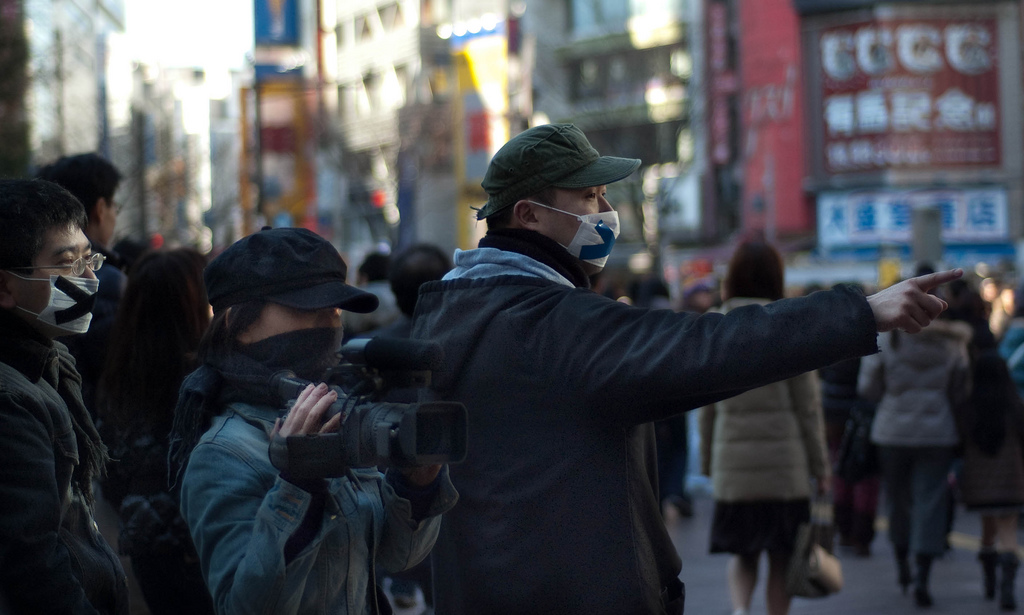At least two dozen activists drummed, rapped, and danced as SXSW attendees streamed into the JW Marriott in downtown Austin, Texas, on Monday morning for a panel titled “Building The Perfect Country.”
Panelists included Ido Aharoni, the consul general of Israel in New York and one of the key minds behind “Brand Israel,” a campaign aimed at boosting the nation’s image abroad by adopting marketing techniques used by successful companies.
“Our brand was almost universally, is almost universally associated with conflict,” Aharoni said at the panel held during SXSW, the annual nine-day music, film and technology festival held here. He compared Israel to other countries like Turkey, which are perceived more favorably than Israel even though they’re also home to “geopolitical conflict” and human rights abuses.
Organized by the local chapter of Jewish Voice For Peace, the protesters outside the panel objected to the idea that a country based on occupation could be anything resembling perfection.
